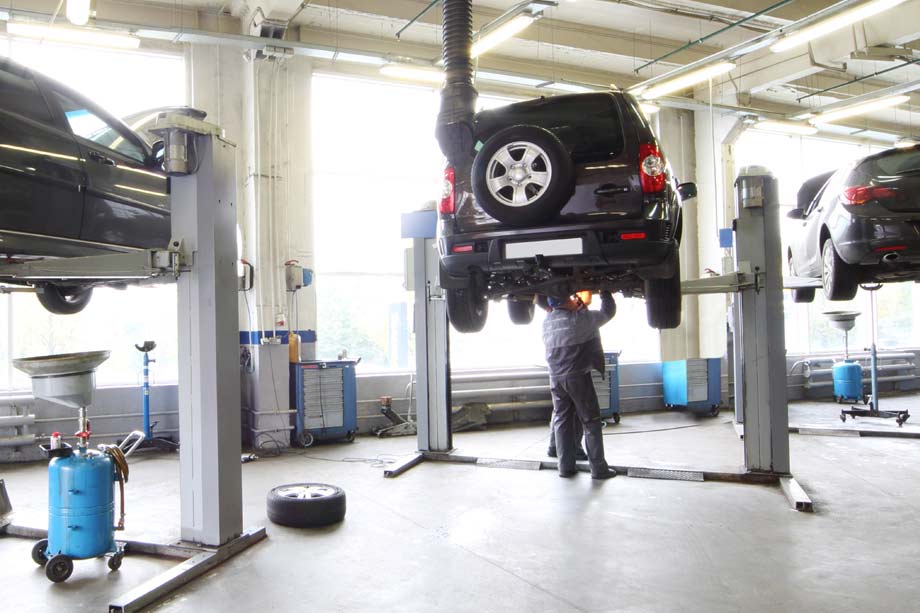All Categories
Featured

Comprehending the difference between routine maintenance and repairs is crucial to guaranteeing your vehicle remains in leading problem and runs effectively throughout its life. Regular maintenance is concerning prevention and ongoing care, while repair services are required when something breaks or breakdowns.
Regular Upkeep: Preventing Future Problems. Regular maintenance involves the normal, scheduled solutions that keep your car in great functioning order and avoid concerns from creating. These jobs are designed to guarantee that all parts of your auto remain to operate as they ought to and assist maintain the vehicle's integrity. Regular upkeep is normally outlined in your car's owner handbook, defining when to do particular tasks based upon gas mileage or time periods.

Some examples of regular upkeep consist of:
Oil Changes: Oil lubes the engine, guaranteeing it runs efficiently and efficiently. Regular oil modifications, typically every 3,000 to 5,000 miles, help stop engine wear and keep the car running efficiently. Tire Turning and Balancing: Tire turning helps level tire wear, while balancing guarantees smooth handling and boosts tire durability. This must be done every 6,000 to 8,000 miles. Brake Inspections: Your car's braking system needs routine checks to guarantee the pads remain in good problem, the fluid degrees suffice, and the blades are operating well. Liquid Checks: Watching on crucial fluids, consisting of transmission liquid, coolant, brake liquid, and power guiding liquid, assists keep the engine and other systems operating smoothly. Air Filter Replacement: The engine air filter maintains dust and debris from getting in the engine. Changing it on a regular basis helps maintain engine performance and fuel efficiency. These upkeep jobs are preventive in nature, created to extend the life of your automobile and decrease the risk of malfunctions. By performing regular upkeep, you can catch little problems prior to they rise into larger, much more expensive troubles.
Repair Works: Repairing Issues That Develop. Repair work, on the other hand, are required when a component of your automobile stops working or damages down. Fixings are frequently unplanned and are called for to bring back the vehicle's capability and safety. Unlike routine maintenance, which is concentrated on prevention, repairs are responsive actions taken when something breakdowns or puts on out. While some repair work may be small, others could be more complicated and expensive.

Instances of usual repair work consist of:
Transmission Issues: Issues such as sliding gears, difficulty changing, or odd noises might signal a malfunction in the transmission, requiring repairs or replacement. Engine Repairs: If the engine is misfiring, overheating, or showing various other indications of problem, it may require a repair work or replacement of specific components like the stimulate plugs, timing belt, or sensors. Brake Fixes: If your brakes are squeaking, making grinding sounds, or stopping working to quit the automobile effectively, you may need to replace brake pads, rotors, or calipers. Battery Substitute: If the auto has problem starting or the battery warning light appears, it may be time to replace the battery. Suspension and Guiding Repair Work: If you experience unequal tire wear, a rough experience, or problem steering, it might be an indication that the shock absorber or steering parts need repair work. Fixings are typically more costly than regular maintenance due to the fact that they entail taking care of problems that can impact the cars and truck's safety or functionality. Depending on the seriousness of the trouble, repairs may call for specialized parts and labor.
Key Differences Between Regular Maintenance and Repair Services. Function: Routine maintenance intends to stop problems and guarantee that the lorry runs successfully. Fixings are required to fix issues that have already taken place. Regularity: Upkeep tasks are performed on a normal routine, while repairs are required when certain concerns emerge suddenly. Cost: Regular maintenance is generally cheaper, as it includes minor checks, modifications, and component replacements. Repairs can be more expensive as a result of labor and components entailed in taking care of damaged components. Timing: Maintenance is foreseeable and prepared, whereas fixings occur when something goes wrong, frequently bring about more urgent focus. The Relevance of Both Routine Maintenance and Repair Services. While regular maintenance is necessary for lessening the need for repairs, repair work are in some cases inevitable. Even the best-maintained lorries can experience wear and tear over time. It's vital to be positive with upkeep and address repair work without delay to guarantee your cars and truck stays reputable and risk-free to drive.
By remaining on top of routine maintenance jobs, you can lower the danger of requiring pricey fixings. Resolving them early can help stop further damage and make sure that your cars and truck continues to do at its finest. when repairs are required.
Conclusion. In summary, routine repair and maintenance are both vital elements of automobile treatment. Routine maintenance helps prevent issues and ensures your automobile is running efficiently, while repair work are needed to deal with problems that emerge all of a sudden. By balancing normal maintenance with prompt repair services, you can expand the life of your automobile and appreciate a much safer, more reputable driving experience.
Latest Posts
Marginal Effort, Optimum Sparkle: The Bath Fitter Advantage
Published May 03, 25
1 min read
Unparalleled Top Quality and Custom-made Solutions for every single Home
Published May 03, 25
1 min read
Looking for Full-Service Vehicle Service Locally? Car-X St. Louis Delivers Quality and Convenience
Published May 03, 25
1 min read
More
Latest Posts
Marginal Effort, Optimum Sparkle: The Bath Fitter Advantage
Published May 03, 25
1 min read
Unparalleled Top Quality and Custom-made Solutions for every single Home
Published May 03, 25
1 min read
Looking for Full-Service Vehicle Service Locally? Car-X St. Louis Delivers Quality and Convenience
Published May 03, 25
1 min read